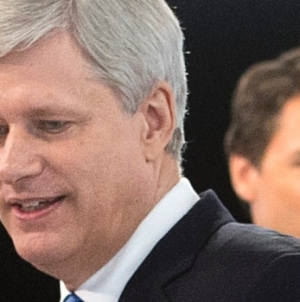-
Tips for becoming a good boxer - November 6, 2020
-
7 expert tips for making your hens night a memorable one - November 6, 2020
-
5 reasons to host your Christmas party on a cruise boat - November 6, 2020
-
What to do when you’re charged with a crime - November 6, 2020
-
Should you get one or multiple dogs? Here’s all you need to know - November 3, 2020
-
A Guide: How to Build Your Very Own Magic Mirror - February 14, 2019
-
Our Top Inspirational Baseball Stars - November 24, 2018
-
Five Tech Tools That Will Help You Turn Your Blog into a Business - November 24, 2018
-
How to Indulge on Vacation without Expanding Your Waist - November 9, 2018
-
5 Strategies for Businesses to Appeal to Today’s Increasingly Mobile-Crazed Customers - November 9, 2018
Left-wing party will form coalition after election win in Greece
With more than half of the ballot papers counted, Syriza was leading with a 35.5% share of the vote compared to 28.2 % for the centre-right New Democracy party. Syriza lawmakers who revolted against the bailout agreement formed a new party, Popular Unity, to advocate a return to the drachma.
Advertisement
A commentator on a Greek news channel Skai was discussing with her colleagues the lowest voter turnout in Greece since written records have been kept for election- Only 55% of eligible voters went to the polls on September 20th to elect their next prime minister.
“The mandate we receive from the Greek people is crystal clear, so we can put an end to the vicious past that governed us so long”, Tsipras told a cheering crowd a few hours after the polls closed.
“In Europe today, Greece and the Greek people are synonymous with resistance and dignity, and this struggle will be continued together for another four years”.
Poised to take 155 seats in the 300-member parliament, the renewed Syriza-Independent Greeks coalition will have a slim majority, which may see Mr Tsipras come under pressure to invite a third party to join the government.
The leader of Greece’s anti-austerity party Alexis Tsipras is celebrating after Syriza won the general election.
“We lost the battle, but not the war”, said Lafazanis, who served as Tsipras’ former energy minister.
Tsipras made no specific comments on the 85 billion euro bailout made in July, but the left-wing party pledged to implement the bailout program, which is due for review next month.
“But we note this result provides a platform upon which Syriza will continue to challenge significant parts of the (bailout) program”, said Malcolm Barr, an economist at JPMorgan.
The Independent Greeks, Tsipras’ partners in the coalition, get 3.69 percent of the vote and 10 seats.
New Democracy leader Vangelis Meimarakis earlier admitted defeat to Mr Tsipras, saying: “I congratulate him and urge him to create the government which is needed”.
Advertisement
“After years of nearly unprecedented crisis, the vast majority of Greeks are endorsing parties that are promising to keep the country in the euro even if that implies thorough and painful reforms”, Holger Schmieding, chief economist at Germany’s Berenberg bank said. Centrist party To Potami ended up with 11 seats, down from 17, but another centrist party, the Union of Centrists, passed the threshold for the first time in its 23-year existence, and entered parliament with 9 MPs.





























